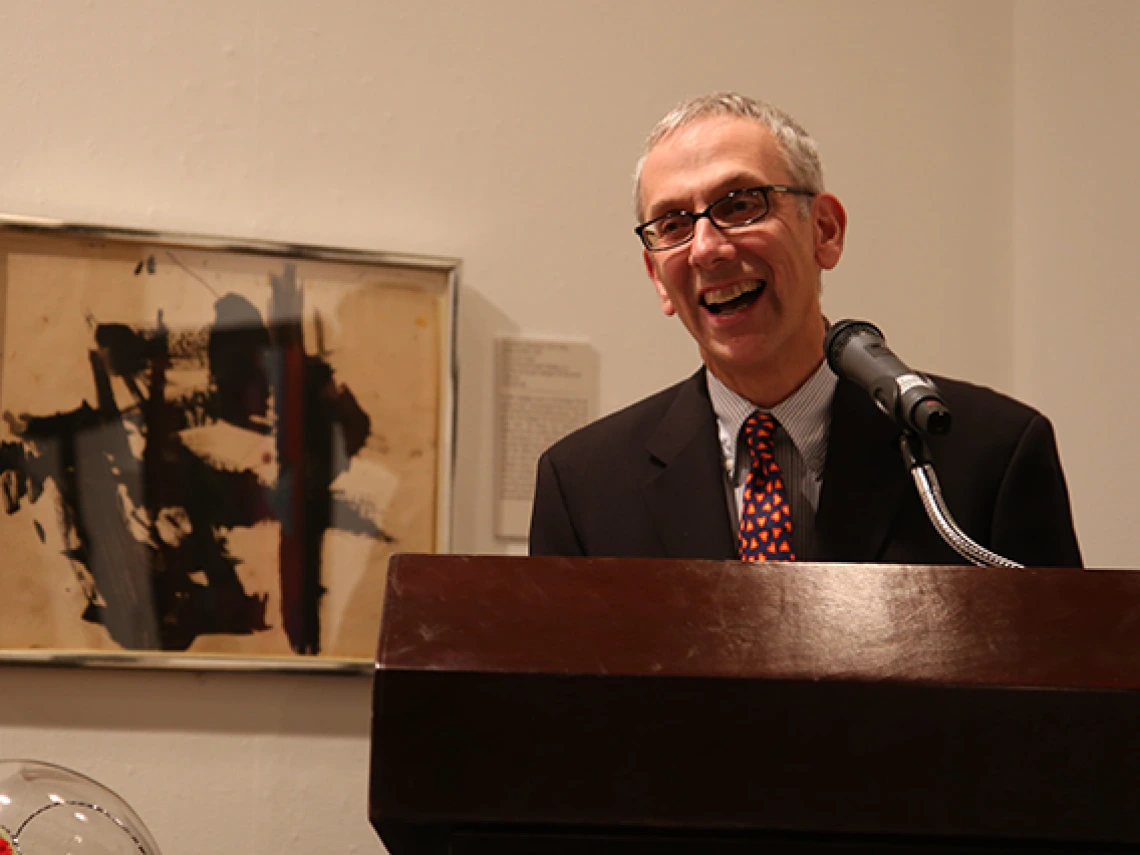Marvin J. Slepian appointed to federal patent advisory committee

Dr. Marvin Slepian
Paul Tumarkin/Tech Launch Arizona
Dr. Marvin J. Slepian, Regents Professor of medicine, medical imaging and surgery at the University of Arizona College of Medicine – Tucson and biomedical engineering at the University of Arizona College of Engineering, has been appointed to the U.S. Patent and Trademark Office’s Patent Public Advisory Committee. His three-year term started Dec. 1 and lasts until Dec. 1, 2026.
The committee is composed of private-sector intellectual property executives who participate in regular meetings to discuss the office’s patent and trademark operations, and advises the patent office on matters related to the policies, goals, performance, budget and user fees of the patent operation. The committee aims to ensure that the office's policies and programs effectively meet the needs of the diverse users of the U.S. patent system.
Slepian is uniquely qualified for the post, as he is a named inventor on more than 60 patents spanning a broad range of technologies, and has worked extensively with Tech Launch Arizona (TLA), the unit of the University of Arizona that commercializes invention stemming from research and innovation. He has brought upwards of 70 invention disclosures to TLA to put through the commercialization process, and in 2014, the office honored him as Inventor of the Year in Biomedical and Life Sciences. He is also a member of the Roundtable on Biomedical Engineering Materials and Applications and the National Research Council of the National Academies. He is an elected fellow of the American Institute for Medical and Biological Engineering, the National Academy of Inventors, and the Biomedical Engineering Society.
Slepian is the founder and director of the university’s Center for Accelerated Biomedical Innovation, which focuses on developing solutions for unmet medical needs, and is also a member of the BIO5 Institute. His research has led to the development of innovative diagnostics and therapeutics for cardiovascular diseases, including drug-eluting stent technologies, novel heart valves, and the only FDA-approved total artificial heart. Most recently his work has expanded leading to novel technologies and approaches in wearables, digital health, and artificial intelligence.
"I really appreciate the faith that the USPTO showed in me by placing me on this committee. I recognize that this is a very important responsibility, to provide guidance, insight and help to drive the invention and innovation mission of USPTO for the country,” Slepian said. “I think invention and innovation are key economic drivers in both good and bad times. And I think fostering a mindset of inventiveness, particularly in young people, and then continuing to reinforce that mindset throughout life is critical to keeping us moving forward in a safe, healthy, economically viable, and creative kind of way.”
The original version of this story was published here on the University of Arizona Health Sciences website.

